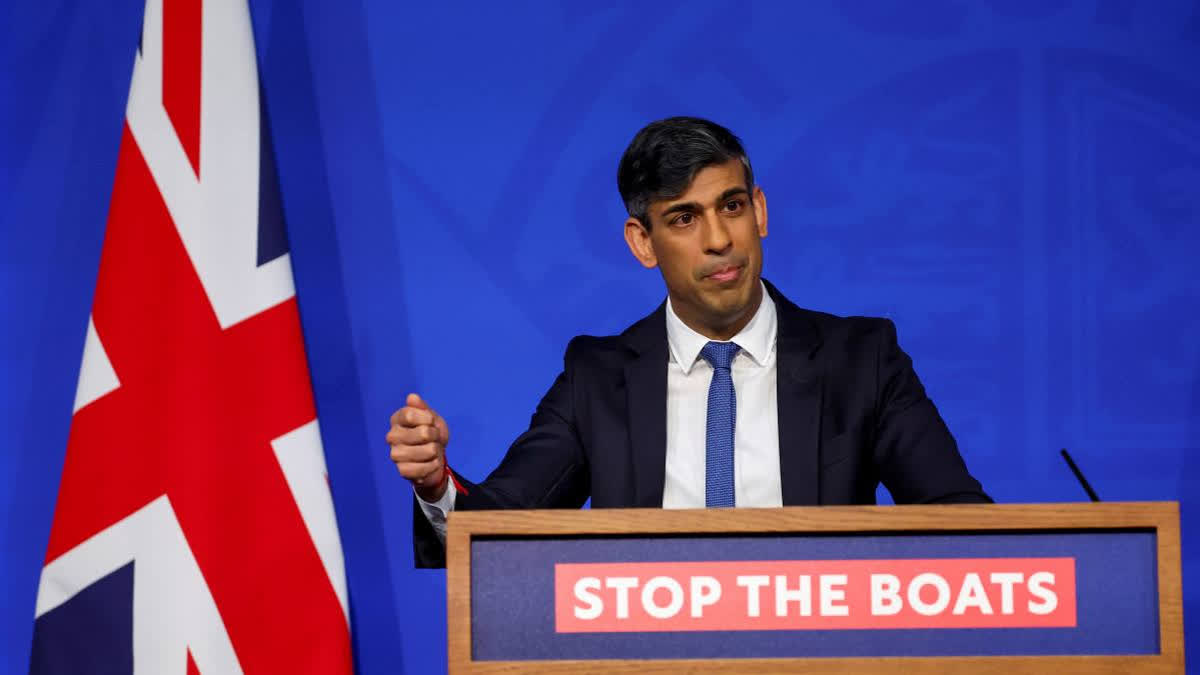London: British Prime Minister Rishi Sunak 's latest effort to send some migrants to Rwanda finally won approval from Parliament early Tuesday, hours after he pledged deportation flights would begin in July.
The parliamentary logjam that had stalled the legislation for two months was finally broken just after midnight when the unelected House of Lords "recognized the primacy" of the elected House of Commons and dropped the last of its proposed amendments, clearing the way for the bill to become law.
Earlier in the day, Sunak held a rare morning press conference to demand that the Lords stop blocking his key proposal for ending the tide of migrants crossing the English Channel in small boats, promising that both houses of Parliament would remain in session until it was approved.
The legislative stalemate was just the latest hurdle to delay implementation of a plan that has been repeatedly blocked by a series of court rulings and opposition from human rights activists who say it is illegal and inhumane. Migrant advocates have vowed to continue the fight against it.
"For almost two years, our opponents have used every trick in the book to block fights and keep the boats coming," Sunak told reporters Monday morning in London. "But enough is enough. No more prevarication, no more delay."
The government plans to deport to Rwanda some of those who enter the United Kingdom illegally as a deterrent to migrants who risk their lives in leaky, inflatable boats in hopes that they will be able to claim asylum once they reach Britain.
Despite Parliament's approval of the legislation, further court challenges may still delay the deportation flights, said Tim Bale, a politics professor at Queen Mary University of London.
"I don't think it is necessarily home and dry," he said. "We will see some attempts to block deportations legally."
Sunak has staked his political future to the deportation flights, making a pledge to "stop the boats" a key part of his pitch to voters as opinion polls show that his Conservative Party trails far behind the Labour Party ahead of a general election later this year. Next week's local elections are seen as a barometer for how the parties will fare in the general election.
The debate in Britain comes as countries throughout Western Europe and North America look for ways to slow the rising number of migrants as war, climate change and political oppression force people from their homes.
Small boat crossings are a potent political issue in Britain, where they are seen as evidence of the government's failure to control immigration.
The number of migrants arriving in Britain on small boats soared to 45,774 in 2022 from just 299 four years earlier as people seeking refuge pay criminal gangs thousands of pounds (dollars) to ferry them across the channel.
